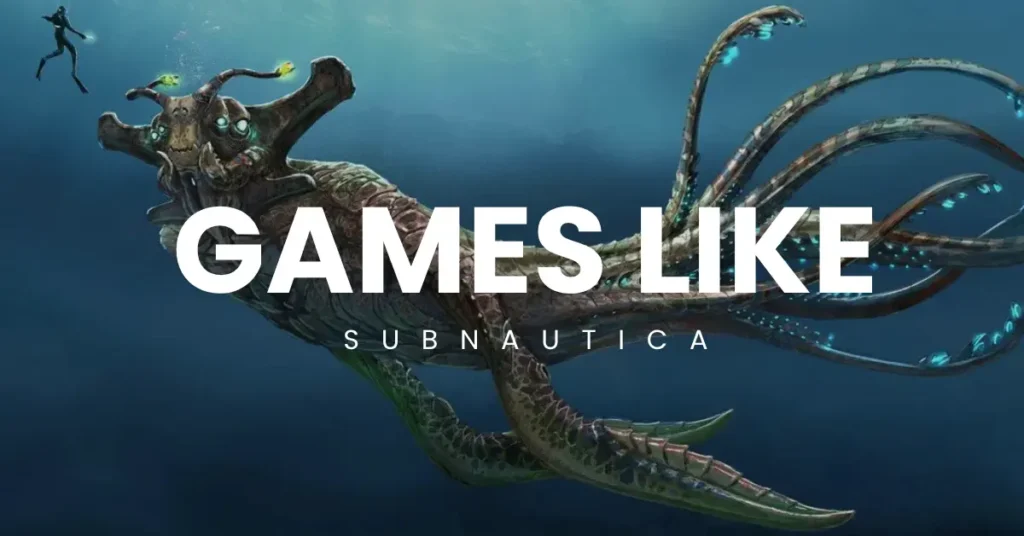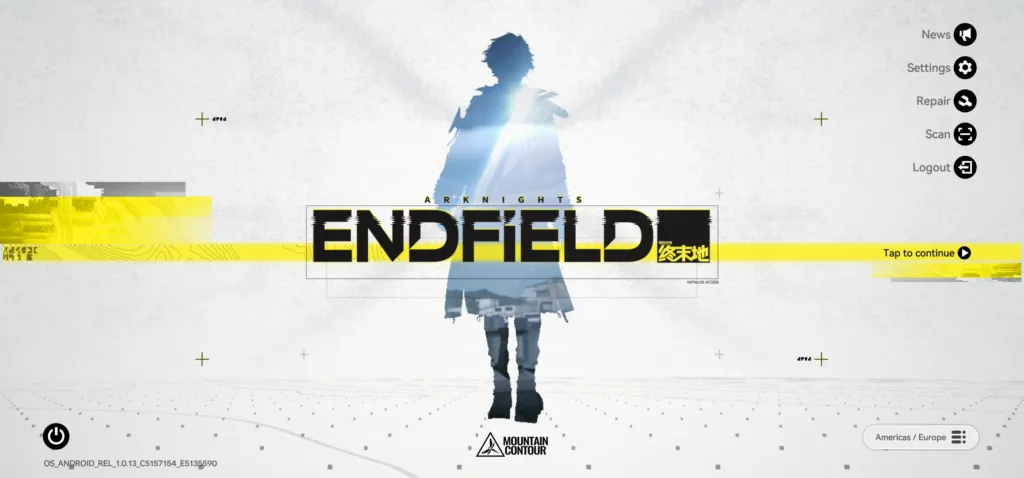Games like Subnautica are out there — you just have to know what you liked best about it. Was it the survival, or the deep sea scenery or the slow burn exploration, or maybe even the quiet horror of it all? Whatever your answer might be, I’ve got you covered.
In this list, I’ve rounded up the best games that have similar vibes to Subnautica, or even similar mechanics, so you’ll definitely find something you’ll like. And if you want more of exactly the same, I’m happy to tell you that next year, we’re getting Subnautica 2 (and you can learn all about it here).
The Forest / Sons of the Forest
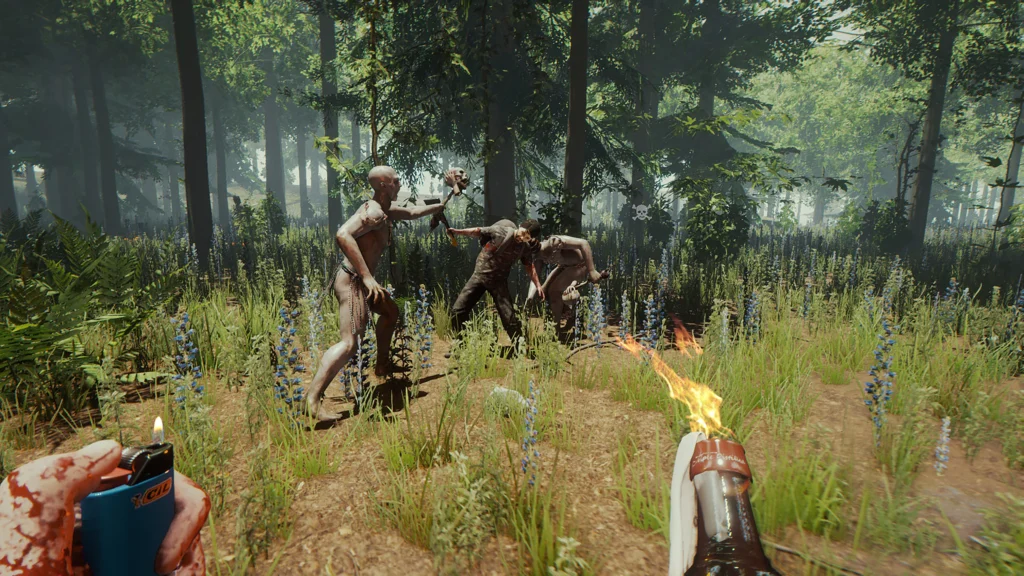
Why it’s similar: Survival-focused with exploration and base building, except you’re dealing with creepy forest-dwelling mutants instead of sea creatures. Isolation and environmental storytelling feel familiar.
The setup is simple: your plane crashes, your kid gets taken, and you wake up in the middle of the woods with a survival book and an axe. From there, it’s up to you. Chop trees, build a base, scavenge for food. Pretty standard stuff until you realize you’re being watched. The enemies in this game aren’t zombies or random wildlife. They’re tribal mutants with weird behavior, and the game doesn’t treat them like simple enemies. Sometimes they stalk you from a distance. Sometimes they scream, run, and disappear into the trees. And sometimes they just straight-up charge your base in the middle of the night.
Sons of the Forest is an improved version. Better visuals, more advanced AI, new building systems, and a co-op companion who’s either helpful or a complete liability, depending on how lucky you are. It’s still very much a survival game first, but the added tools make it easier to experiment and play at your own pace.
Both games share that same slow-burn survival tension Subnautica nails. You start out fragile, but with every trip out, you get a little stronger, a little smarter. Until eventually, you’re no longer scared of every little thing.
Looking for more survival games? Check out my top list here!
Green Hell
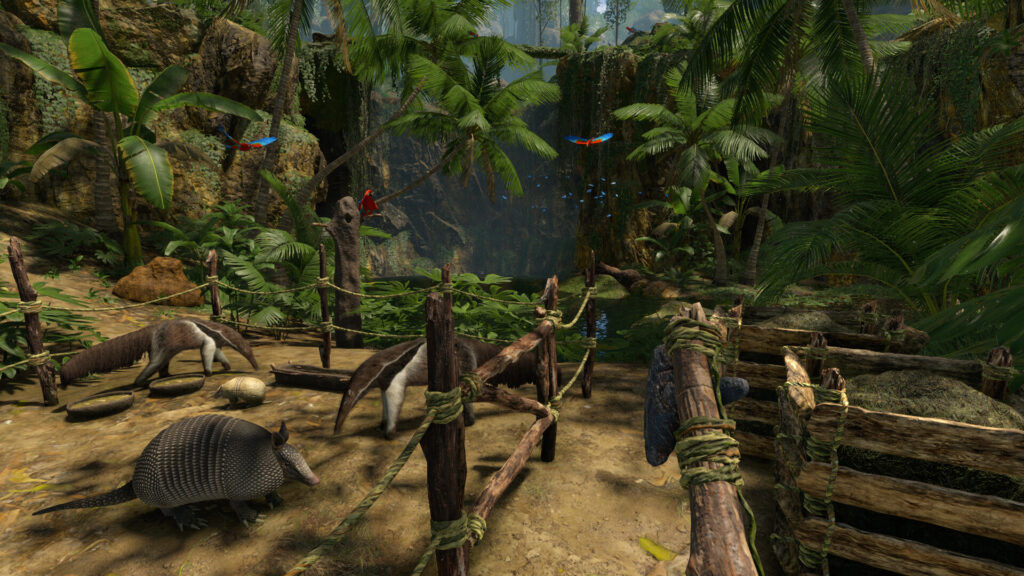
Why it’s similar: Hardcore survival in the Amazon jungle. You craft, heal wounds, and try not to die from infections. Way more grounded than Subnautica, but the struggle to stay alive hits the same nerve.
At its core, it’s another survival sim – gather resources, craft tools, manage your health. But Green Hell goes deeper. You’re dealing with parasites, infections, broken bones, sanity, and god help you if you step on a snake. Everything you do has a consequence. Eat the wrong thing? You get food poisoning. Forget to check your arms for leeches? Enjoy the mental spiral.
The crafting is manual, you’re not clicking a button and watching something appear. You’re actually dragging sticks, ropes, and stones into the right configuration. That level of detail makes every shelter or tool feel earned.
There’s a story mode here too, tied to a missing person and a tribal mystery. It’s fully voice-acted and gives you more structure if you want something to aim for, but you can also play in pure survival mode and just see how long you last. Either way, the deeper you push into the jungle, the more brutal it gets.
No Man’s Sky
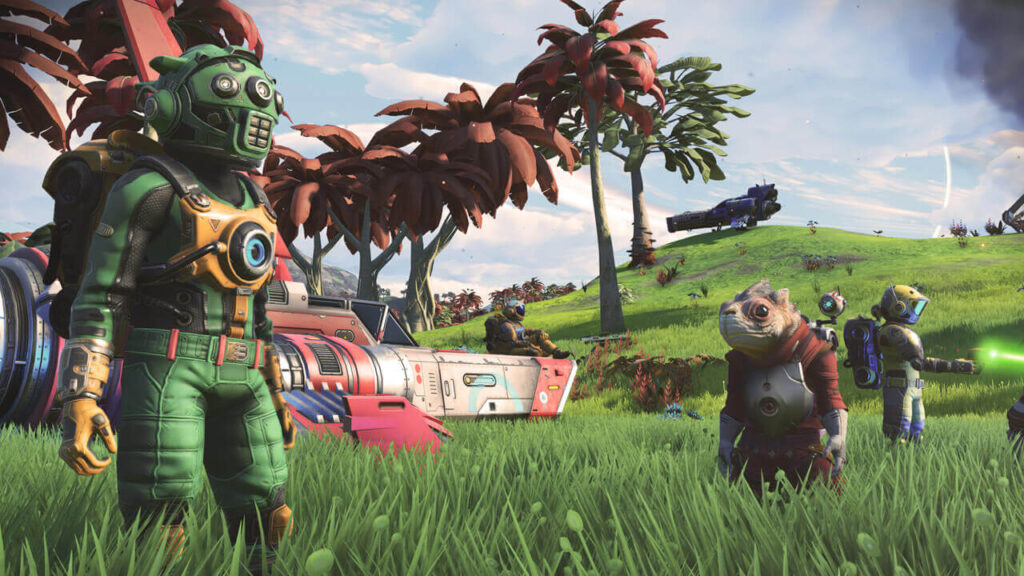
Why it’s similar: Space-based survival with crafting, alien fauna, and planetary exploration. Since launch, it’s been heavily improved. Doesn’t have Subnautica’s tension, but has way more scale.
The game starts with you stranded on a random planet, your ship broken, and your life support systems failing. You scramble for resources, patch things together, and eventually lift off into space. From there, it’s up to you. You can follow a loose storyline or just start hopping from planet to planet, scanning wildlife, mining rare materials, building bases, and messing with your tech tree.
There’s a survival mode that plays a lot like Subnautica with managing oxygen, temperature, radiation, and inventory space. And because the planets are procedurally generated, you never really know what kind of terrain (or threats) you’ll run into next. Some are peaceful. Some are trying very hard to kill you. It’s not as tightly designed as Subnautica’s handcrafted biomes, but the sense of exploration is much bigger.
No Man’s Sky can also be pretty cozy if you want it to be, and if you like that vibe, check out my top cozy games here.
Raft
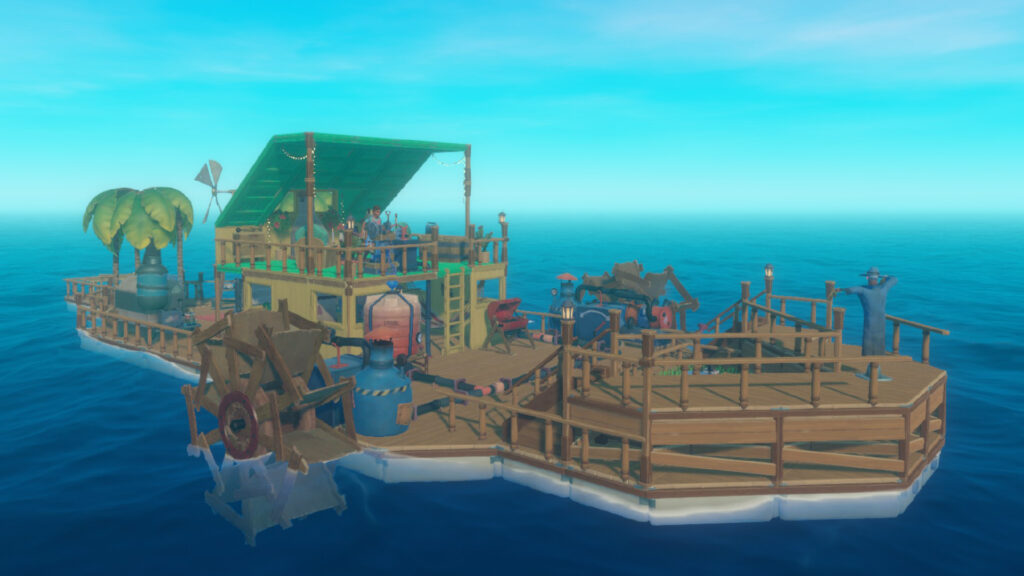
Why it’s similar: Survival in the ocean, but on a floating raft. You build up your mobile base, collect debris, dive for resources, and fend off sharks. Feels like a cousin to Subnautica.
The core loop is all about collecting debris, expanding your raft, and building tools and structures to help you survive. At first, it’s just about not dying of thirst. Then you build a purifier, maybe a grill, then storage. Before long, your raft starts turning into an actual floating base, and you’re chasing after islands, diving for scrap, and setting up farming plots and furniture.
There’s progression here, but it’s pretty chill. You unlock blueprints, research better tools, and eventually explore larger story-driven islands with actual objectives. There’s even a loose narrative you can follow through radio towers and notes, but you don’t have to engage with it if you’d rather just float and build.
ABZÛ
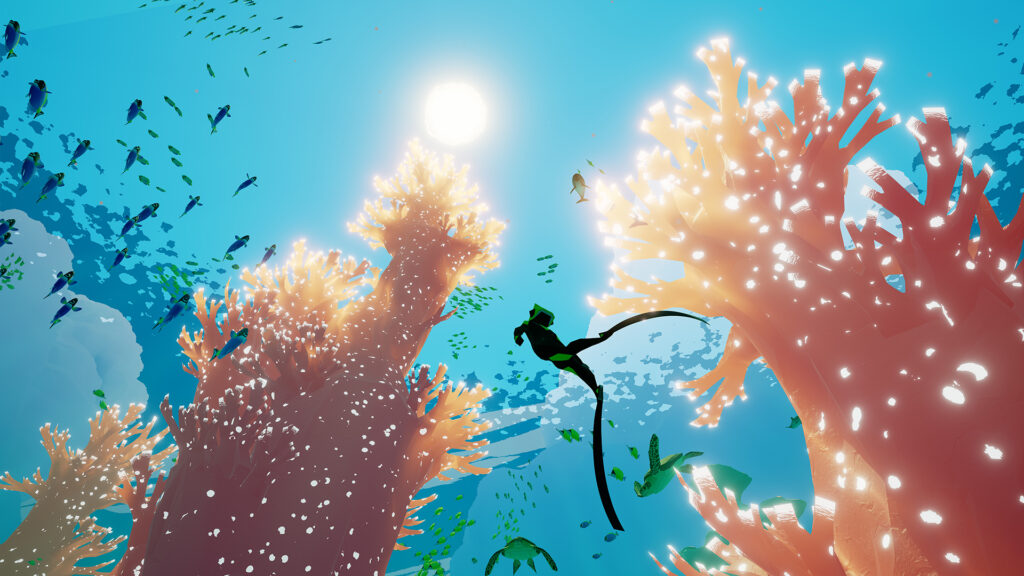
Why it’s similar: Not a survival game, but if it’s the underwater exploration and peaceful ocean vibes you liked, this one is worth a mention. More of a visual and emotional journey.
ABZÛ isn’t a survival game, and it’s not trying to be. If you’re coming from Subnautica and looking for another deep-sea adventure but without all the oxygen management and existential dread, this one’s more of a visual breather.
You’re a diver, and that’s about all the context you get. No HUD, no crafting, no enemies. Just fluid swimming, colorful ocean life, and a series of areas that gradually open up as you move through them. It’s more of an interactive experience than a traditional game, but that’s not a bad thing.
What ABZÛ does really well is atmosphere. The visuals are stylized but beautiful, The controls are smooth, which makes swimming actually enjoyable not something you’re constantly fighting against. You’re here to explore and enjoy the world, not survive it.
Don’t expect a deep sci-fi mystery like Subnautica. This is more about the feeling of being underwater and the calm that comes with it.
ABZU is also very short and perfect for Steam Deck (and if you want more games like that, check out my top picks here).
Stranded Deep
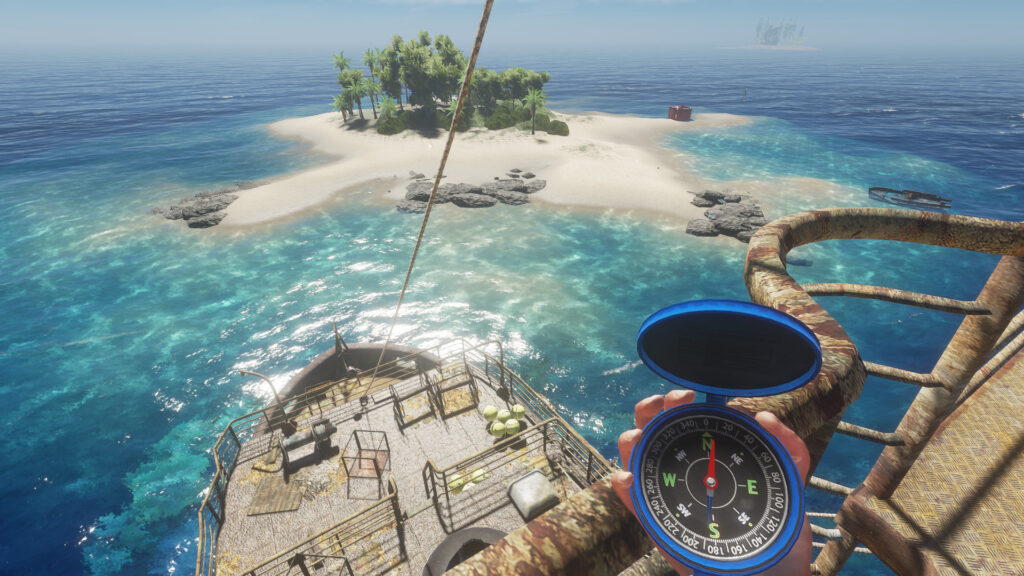
Why it’s similar: You’re stuck on a series of islands and need to survive using whatever you can find. Includes diving, crafting, and shark encounters. It’s like Subnautica but more grounded and less polished.
Stranded Deep feels like it sits somewhere between Subnautica and The Forest. You survive a plane crash and end up stranded in the middle of the ocean with nothing but a life raft and whatever you can scavenge. From there, it’s pure survival – crafting tools, building shelter, managing hunger and thirst, and trying not to get wrecked by sharks, storms, or your own bad decisions.
At first, you’re hopping between tiny islands, grabbing coconuts and scrap metal, trying to piece together a basic setup. But eventually, it opens up. You build rafts, explore shipwrecks, and dive into the deeper parts of the ocean where the real risks (and rewards) are.
Breathedge
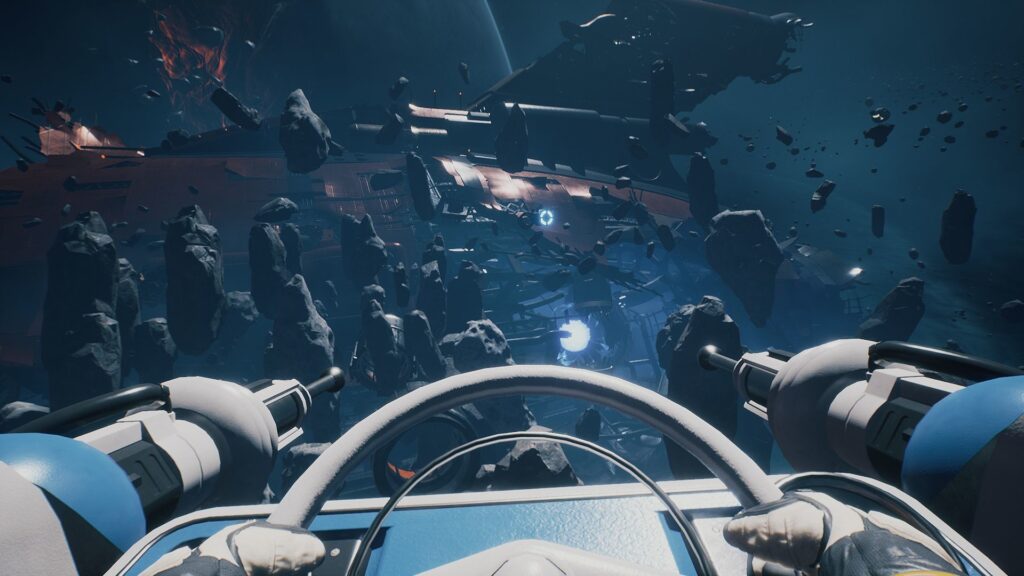
Why it’s similar: A space survival game that feels like Subnautica in zero gravity with a sarcastic narrator and a weird sense of humor. It’s less serious but still survival-focused.
You play as a guy whose grandfather has died, and you’re transporting his ashes through space. Naturally, everything goes wrong, and you end up stranded in a zero-gravity debris field with nothing but trash, oxygen leaks, and a weird immortal chicken for company. Yes, really.
Gameplay-wise, it’s familiar: collect junk, craft tools, manage oxygen, and slowly build up your space station. Movement is entirely in zero-G, so getting around takes a bit of getting used to. You’ll be floating through wreckage, dodging hazards, and praying you make it back to your oxygen source before blacking out. Sound familiar? It’s basically Subnautica, but with less ocean and more vacuum.
The difference is tone. Breathedge leans hard into satire. Sometimes it works, sometimes it drags, but underneath the jokes, there’s a solid survival loop. You expand your base, upgrade your gear, and push out further into the wreckage to figure out what actually happened and how to fix it.
Planet Crafter
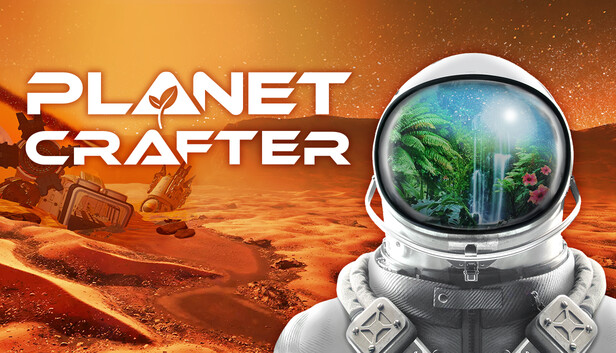
Why it’s similar: Like Subnautica, The Planet Crafter starts with a simple survival setup and builds into a full-on base-building, exploration, and tech progression loop with a heavy focus on environmental transformation instead of combat.
You’re dropped onto a barren alien planet with one goal: make it livable. There’s no real threat chasing you, no hostile creatures to dodge, just you, a few tools, and a massive terraforming job ahead. You start by collecting resources, building basic shelters, and crafting machines to generate oxygen, heat, and pressure. As you improve the planet’s atmosphere, the environment literally changes around you and skies go from dusty orange to blue, water fills dried-out basins, and vegetation starts to take hold.
The loop is simple but effective. Explore, gather, build, unlock tech, and slowly watch the world come to life. There’s no combat, and no heavy survival mechanics outside of keeping your oxygen and water levels in check. It’s more about long-term planning and base-building than moment-to-moment tension.
Outer Wilds
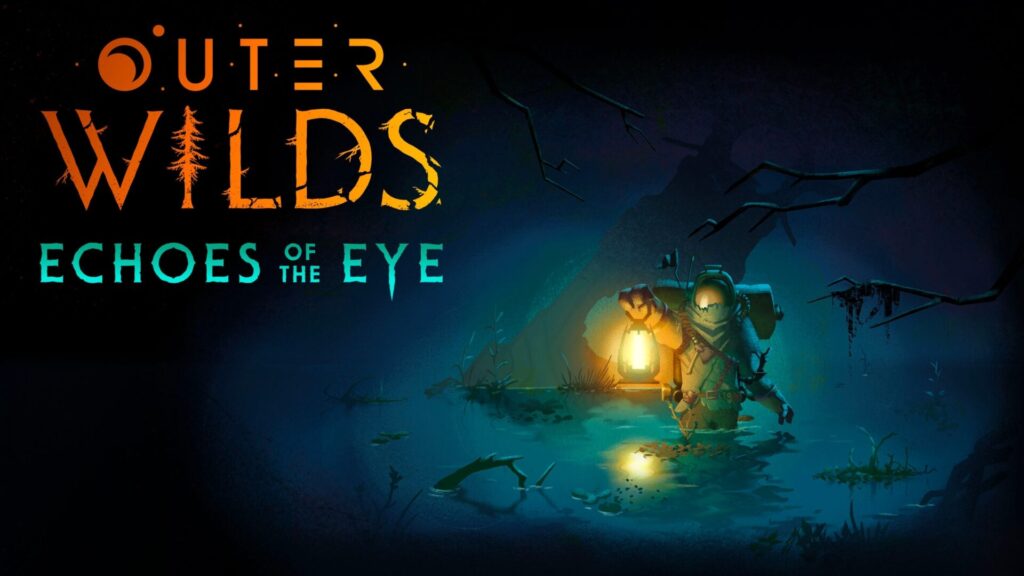
Why it’s similar: Like Subnautica, Outer Wilds drops you into a mysterious world (well, solar system) with minimal direction and asks you to explore, experiment, and uncover its secrets at your own pace with progress tied more to knowledge than gear.
You play as an astronaut from a curious alien race, exploring your solar system in a very DIY-looking spaceship. There’s no combat, no inventory grind, and no upgrades to chase. What you’re really doing is piecing together the history of an ancient civilization, one clue at a time. The hook? You’re stuck in a time loop. Every 22 minutes, the sun explodes and resets everything except what you’ve learned.
The gameplay is all about exploration and observation. You visit strange planets with unique mechanics like one collapsing into a black hole, another slowly buried in sand and you figure out how everything connects.
Outer Wilds is slower-paced, puzzle-heavy, and leans hard into mystery and atmosphere. If you liked the way Subnautica rewarded paying attention and going deeper (literally and figuratively), you’ll probably click with this too. Just don’t go expecting a traditional survival game because this one’s more about understanding than surviving.
If you like games set in space, you should check out this list here.
Valheim
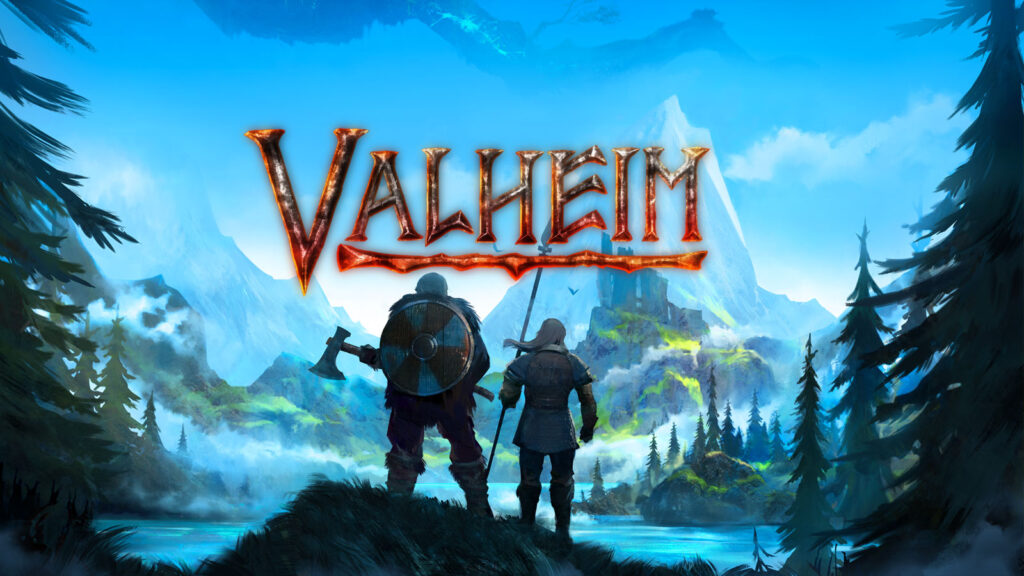
Why it’s similar: Valheim builds around the idea of slow, meaningful progression. Start with nothing, gather resources, craft your gear, build a base, and unlock new biomes that push you to adapt and survive.
Valheim throws you into a massive Norse-inspired world as a dead warrior sent to prove your worth. You start with a rock and a rag, and if you stick with it, you’ll end up clearing entire forests, building longhouses, taming wolves, sailing across deadly oceans, and fighting mythological bosses. It’s got that same satisfying loop where small upgrades make a big difference, and every new biome raises the stakes.
You learn by doing, and the game expects you to figure things out just like Subnautica. The moment you step into a new zone and realize the enemies hit ten times harder? That’s your cue to go prep. And yeah, you can build wherever you want.
It won’t blow anyone away graphically, but the atmosphere works. Foggy mornings in the Black Forest or stormy nights on the ocean hit differently once you’re invested.
Nightingale
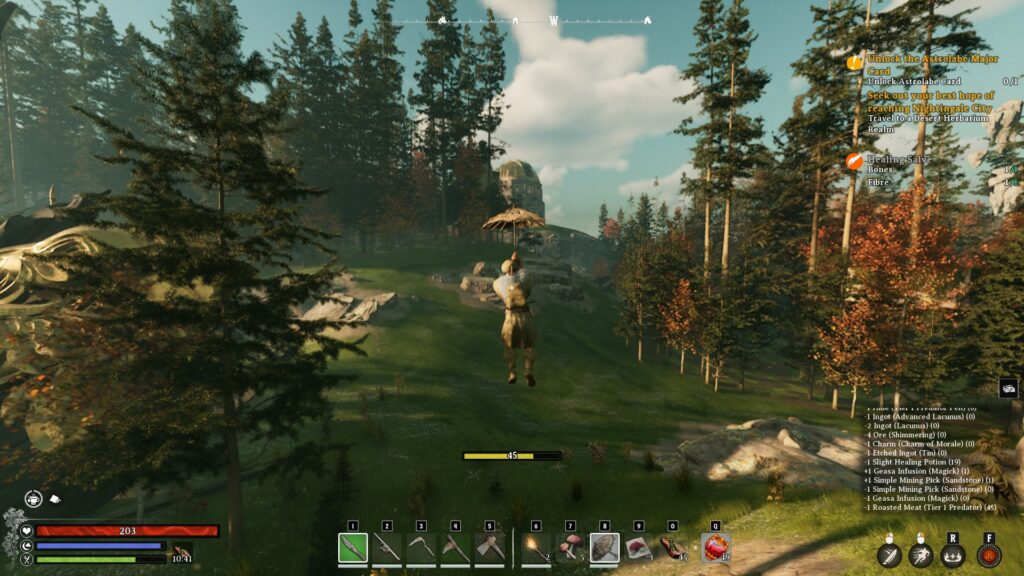
Why it’s similar: Like Subnautica, Nightingale blends exploration, survival, and base-building into one progression loop, where crafting and unlocking new areas go hand in hand—and you’re constantly pushing into weirder and more dangerous territory.
Set in a Victorian-inspired fantasy world, Nightingale drops you into shifting, procedurally generated realms full of strange creatures, ruins, and resources. The twist is how you travel: through portals you open and customize with Realm Cards. These cards let you influence what kind of world you land in and its difficulty, biome, weather, and enemies. It’s a cool idea that makes exploration feel more deliberate and gives you some control over the risk-reward balance.
You gather resources, build up your gear, and create bases across different realms. It has all the survival basics like stamina, hunger, crafting benches, farming but layered with a heavy dose of magic and lore.
The combat is more involved than Subnautica, with guns, spells, and melee, but the survival progression feels familiar: start with scraps, then work your way toward building entire estates and opening tougher portals. There’s also a lot of flexibility in how you build and travel, so it doesn’t feel like you’re constantly being funneled into one playstyle.
Pavle is the founder of PlayForge and its lead writer and reviewer, covering PC, PS5, and mobile games, a with a focus on RPGs, MMOs, FPS games, and more. He’s been gaming since the PS2 days and now writes in-depth reviews and guides to help players find their next obsession and get gaming insights from real players, not just critics. His reviews are honest and transparent, but he always tries to stay positive, because in his opinion, almost any game can be fun if you look at it the right way.
In his free time, he likes to (obviously) play more games, spend time with his family, theorycraft about various media with his wife, and watch anime. So yes, he’s a complete nerd, even if he’ll never admit it.
